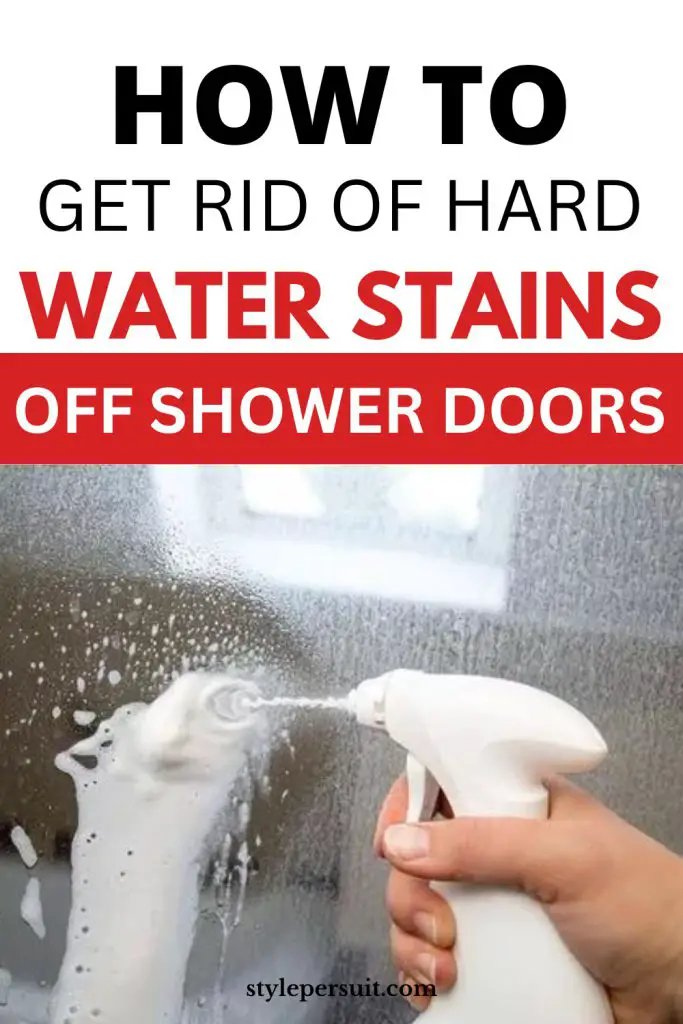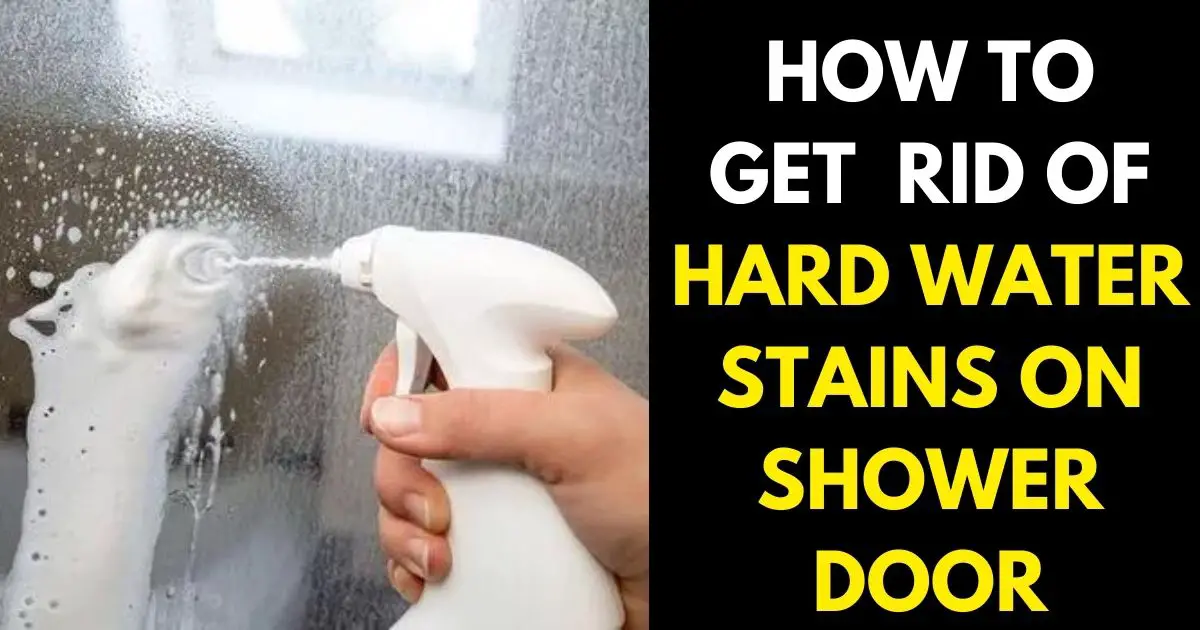When it’s time to clean your bathroom, dealing with the shower can be the most challenging task. This is mainly due to the combination of moisture, leftover soap scum, and the stubborn hard water deposits that accumulate on the glass surfaces. Among these issues, hard water stains are the primary cause of those unsightly spots on your shower glass.
Hard water stains, also called limescale, contain high mineral content. As water evaporates, these minerals are left behind, creating a chalky residue that coats surfaces. This residue clings to glass, tiles, and fixtures, forming hard, crusty deposits that can change color from white to green over time.
If you neglect to address hard water stains regularly, they can become increasingly difficult to remove. Cleaning your shower every two weeks (or weekly for heavily used showers). You can easily make a DIY cleaning solution using common household ingredients to tackle this issue and prevent the build-up from becoming a cleaning nightmare.
What is Hard Water?
Hard water is water that contains a high concentration of dissolved minerals like chalk, lime, calcium, and magnesium. As water travels through the ground and enters our water systems, it picks up these minerals along the way.
While hard water is generally safe to drink and not a health hazard, prolonged exposure can have negative effects on both your appliances and skin, especially if you have conditions like eczema.
What Causes Hard Water Stains on Shower Doors and Screens?
If you’ve ever installed a new glass shower door or screen, you’ve probably noticed that the initial shiny and new appearance doesn’t last long, even with regular cleaning and maintenance. The challenge with hard water stains on shower doors lies in the combination of hard water and soap scum.
In a shower setting, the calcium and magnesium in your water mix with fatty acids in soaps and shampoos. When this mixture dries, it forms a stubborn, crusty film that is notoriously difficult to clean.
What Problems Does Hard Water Cause?
The primary issue with hard water is the formation of limescale, leading to significant maintenance and replacement costs for homeowners. Here are some examples of problems caused by hard water:
– Appliances: Limescale buildup in appliances like washing machines reduces their efficiency and lifespan, as it forces them to work harder.
– Slow flushing toilet: Impurities accumulating in drainpipes narrow them, reducing water flow and causing clogs.
– Dirty dishes: Hard water is responsible for the scummy, cloudy layer on dishes and glassware.
– Hair: Mineral deposits from hard water can dull hair’s natural shine and leave buildup on the scalp, making hair look dull and dirty.
– Skin: Hard water inhibits soap dissolution, leaving a residue on the skin that can cause itchiness and worsen skin conditions like eczema and psoriasis.
Materials You’ll Need
Hard water stains can be stubborn, but don’t worry—common kitchen items like white vinegar and baking soda can effectively tackle those unsightly spots.
- – Gloves
- – White vinegar
- – Paper towels
- – Spray bottle
- – Sponge
- – Baking soda
- – Distilled water
- – Microfiber towel
How to Clean Hard Water Stains
Once you’ve gathered your supplies, it’s time to get started. Follow these steps to make your shower glass sparkle again:
1. Soak Glass in White Vinegar
Wearing gloves, warm up a good amount of white vinegar on the stovetop until it’s hot.
Dip paper towels into the hot vinegar and place them on your shower glass. The slight acidity of vinegar helps it penetrate and loosen mineral deposits.
Let the vinegar sit for 30 to 60 minutes. To keep the glass wet, occasionally spray the paper towels with vinegar from a spray bottle.
2. Wipe Down Shower Door
Remove the paper towels once the time is up.
Sprinkle a damp sponge or rag with a generous amount of baking soda.
Gently wipe down the shower door, avoiding vigorous scrubbing to prevent scratching.
3. Rinse With Distilled Water
Pour distilled water over the glass to rinse away any remaining vinegar and baking soda.
Your glass should be gleaming by now, but if any limescale persists, repeat the baking soda scrub until all build-up is gone.
4. Dry the glass with a microfiber towel
With these simple steps and household items, your shower glass will be free of hard water stains and looking as good as new.
What to Do If Stains Persist
Vinegar is usually effective in removing hard water stains. However, if the stains have been around for a while and vinegar doesn’t seem to do the trick, trying a lemon.
For this method, cut a lemon in half, dip it in salt, and use it to scrub away the grime. The abrasives of the salt and the acidity of the lemon eat away at soap scum and mineral build-up, leaving your shower glass shining. To maintain spotless glass for a longer period, spray some lemon juice on your shower after cleaning.
How to Slow Future Limescale Build-Up
If you have hard water in your home, dealing with these spots is inevitable, but there are ways to slow down and minimize the build-up.
1. Check Your Water Quality
Your water might have become harder than usual, making limescale more challenging to remove. Water travels through layers of rocks before reaching our homes, it interacts with minerals, causing it to become harder.
Cloudy spots on dishes and glasses could be a sign of increased water hardness. Investing in a water softener if your water is too hard to help address the issue.
2. Wipe Down Glass After Use
The most effective way to prevent build-up is by wiping down your shower after each use. Hard water stains form after the water evaporates and leaves minerals behind. Immediate cleaning eliminates the problem altogether, ensuring your shower stays clean and spot-free.
If you found these tips helpful, consider sharing this post on Pinterest!



